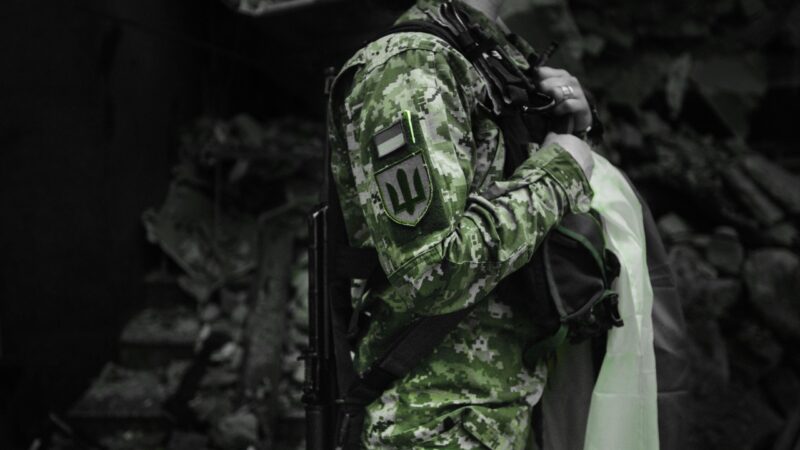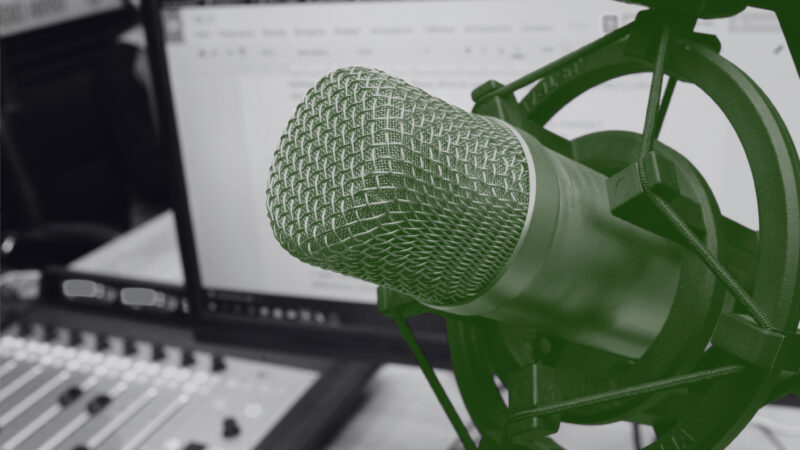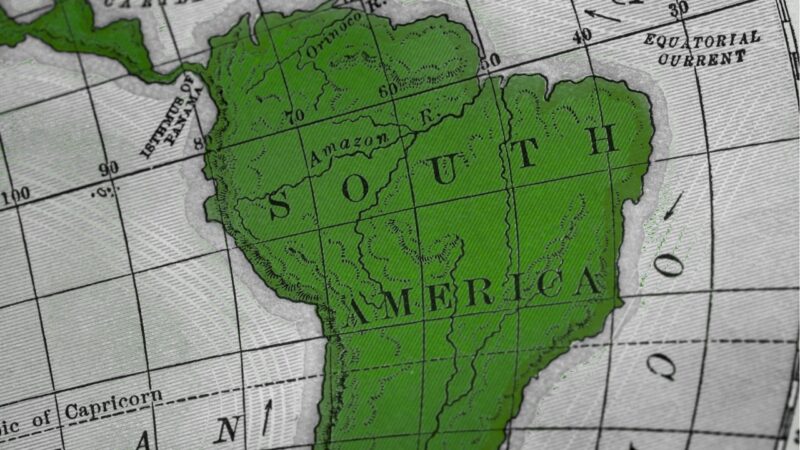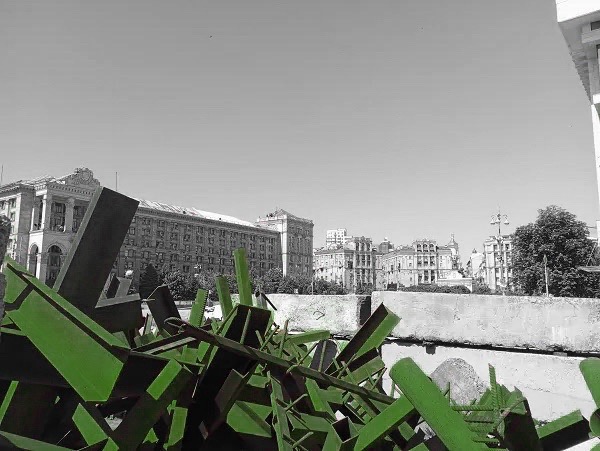Interview with Peter Vermeersch | In the EU, Ukraine is perceived as “the eastern edge of Western Europe”
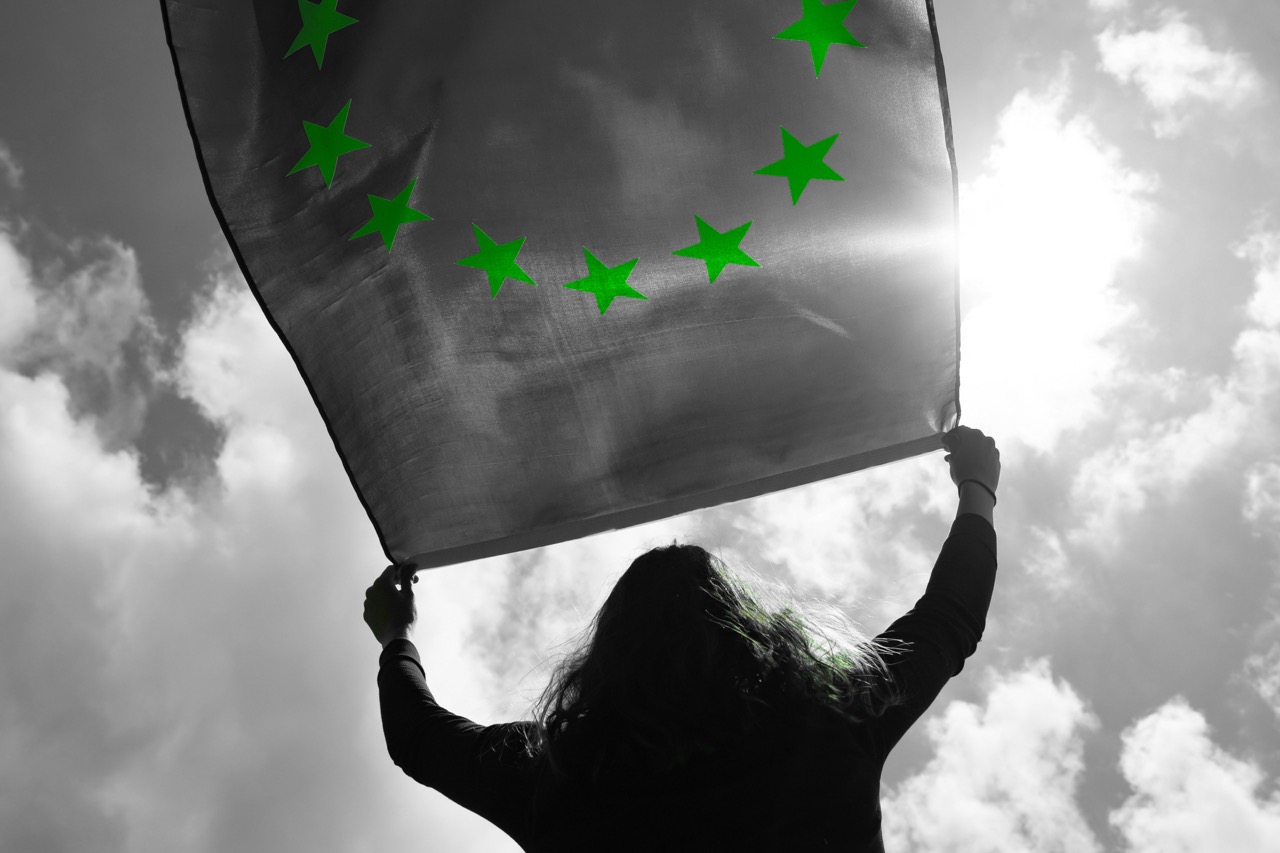
Ostap Kushnir: How has the perception of Ukraine changed across the EU—and specifically in Belgium, the EU’s core state—since February 2022?
Peter Vermeersch: The perception of Ukraine has changed a lot across the EU. Though it is hard to generalize, Ukraine was largely unknown as a country before the invasion. It was a faraway piece of Eastern Europe—or, perhaps more clearly, the western edge of Eastern Europe. However, since the escalated invasion a lot of Europeans, and specifically Belgians, have started perceiving Ukraine as the eastern edge of Western Europe.
If you take a wider perspective, perceptions of Ukraine had already begun changing before the Russian invasion in 2022. After the Orange Revolution (2004–05) and later the Euromaidan (2013–14) and annexation of Crimea, it became clear to Belgians that Ukraine is something unique and worth observing. The connection and solidarity with Ukraine have been growing and intensifying over the years.
Certainly, in today’s context Ukraine is seen as an ally in the opposition to Vladimir Putin’s regime. This is the dominant perception. But in Belgium as well as in the EU in general, I do not think that the familiarity of Ukraine—its cultural commonalities as well as the need for solidarity with it—has been fully acknowledged.
On the one hand, across the European Union, although not as much in Belgium, there has been an established tradition to deal with Putin on certain issues, especially energy and economics. That has clearly ceased now, but it was strong enough to overlook the Euromaidan and the annexation of Crimea.
On the other hand, the EU has many times been excessively optimistic in its attitude toward Ukraine. This optimism stimulated wishful thinking in Ukraine about the possibility of its quick accession to the EU, which was not so close to reality. Even today, the EU continues portraying membership as a real possibility. Obviously, this is in the heat of the moment and carries a mobilizing effect. However, I am afraid that Ukrainians may feel disappointment in the future, when the war situation changes.
I think that Belgium has a particular role in radiating excessive optimism. Guy Verhofstadt, a current European parliamentarian and former Belgian prime minister, visited Ukraine personally several times to promote EU membership and support protest movements, including during the Euromaidan. Obviously this was done with good intentions, but it might have given a misleading impression about the ability of the EU to bring Ukraine into its fold in a short amount of time. The Balkans may serve as a good point of reference here, with the EU’s enlargement toward that region never having been as smooth as many people there hoped it would be.
Kushnir: How do you assess the sensibility and effectiveness of the EU’s current wartime policies toward Ukraine and Russia? Can anything be done differently, with higher effectiveness?
Vermeersch: It is a good question but a difficult one to answer. I know that a lot of people are complaining that the EU is not doing enough and that it will not be able to make a difference in the end. However, I have a slightly more positive view of this. You have to acknowledge how much the EU has done in terms of unifying its member-states’ policies regarding Ukraine.
In recent times the EU has been through a series of crises: Brexit, the rise of anti-EU populism, tense relations between Poland and Germany, economic recession and energy troubles, the willingness of Hungary to continue doing business with Russia, and others. If you place the EU’s policy on Ukraine against this background, a remarkably solid and unified stand of the EU has been achieved despite all internal disagreements. There has been a powerful response to the war in terms of economic actions, accompanied by a response on the energy front, which will definitely hamper the regime in Russia. The EU made a big gamble to play on the level of energy.
I should also stress that sensibility and effectiveness of the EU’s policies can only happen when the population in the EU supports those policies. And this is what we can observe across the board today. For instance, in Belgium support of Ukraine as well as openness to Ukrainian migrants and refugees have not diminished since February. I am not saying it will last forever—there may be a point when politicians mobilize the population in the opposite direction—but for the moment there is unified support across the population for the EU’s actions being taken toward Ukraine, as well as sanctions against Russia.
Kushnir: Do you think that the EU could have prevented Russia’s invasion of Ukraine if different steps were taken before February 2022?
Vermeersch: Observing how Putin’s regime operates and what kind of reality it constructs, I think no. The invasion was the result of decisions in Russia; it was not provoked by NATO or EU actions. We should not make a mistake or misjudgement here. The responsibility for the aggression lies with Russia.
The EU could have probably seen the invasion coming for quite some time. However, we know that it takes faits accomplis to understand the past and explain how the current reality has been influenced by what came before. Very few people predicted the invasion as it happened, but once the invasion happened many started claiming: “We could have predicted it.” But if you could have predicted it, then you should contemplate the actions which you did not take to prevent it. That being said, I do not think that the EU could have dissuaded Putin’s regime from the invasion.
A different issue is whether the EU made good political choices regarding Russia in the past. I think it did not. The energy deals were not properly balanced. In the pre-invasion reality, the EU as a global player excessively relied on fossil energy and made itself dependent on petrol states like Russia. That was counterproductive and hamstrung the EU.
Also, there was wishful thinking on the side of many EU countries that ultimately Russia would democratize thanks to its thriving economy. The influx of money and technologies as well as the friendliness of EU energy policies were supposed to soften the regime. However, it turns out that if you are dealing with a corrupt petrol state, the money you invest is not fairly distributed. Thus, the influx of money neither makes the regime more democratic nor helps to protect human rights or allows the opposition to function. This is where the EU jeopardized a couple of chances.
It is important to stress that with respect to Russia, political gamesmanship had a bigger effect on the current situation than the EU’s generous symbolic support to Ukraine. For example, during the Euromaidan protests a lot of cheerful statements were made about the bravery of the people. Nevertheless, the EU still continued to be dependent on fossil fuel energy from Russia.
Taking an even wider perspective, I think that the EU should have acted on Eastern Europe, including Russia, much earlier. In the 1990s, a sort of Marshall Plan was needed for the post-Soviet countries to become more democratic, build a different future, and acquire new opportunities.
The EU should have also drawn lessons from global warming much earlier and engaged in climate-friendly energy policies years ago. Today, that would have made the EU more independent from the petrol states, specifically Russia.
Kushnir: Considering that the Russo-Ukrainian war is happening in the EU’s “backyard,” same as the Yugoslav wars in the 1990s, what solutions from the postwar reconstruction of the Balkan states can the EU use to assist Ukraine after the fighting is over there?
Vermeersch: It is an interesting question. To begin with, the conflicts are very different. They are taking place in different times and geopolitical realities. One cannot copy-paste solutions just like that. But there are a number of lessons to be drawn.
Cleaning up after war takes a lot of time. The fighting in the Balkans ended two decades ago, and the cleaning up there continues still. In a literal sense, war damage needs to be physically removed. The damage must also be removed in a metaphorical sense, from societies. People are not easily forgetting their own injuries and victimization, as well as the crimes committed against their country overall.
Furthermore, certain aspects of political thinking and societal mobilization may remain rooted in the frameworks of the past war. As long as you cannot escape from it, then the conflict continues even if there is no fighting. Therefore, my first caution is that time will be a crucial element.
Speaking of Russia, there will be questions raised about what the regime did to the mentality of its population. It is pretty clear to me that within the context of today’s Russia, public opposition remains a very tricky thing. It is really hard for many Russians to speak against their government, as the risks of persecution are real. So it is normal, to some extent, that you do not see much anti-government activity.
That being said, the overall passivity of Russian citizens against Putin and his regime has only increased over the years, alongside the strengthening of that regime. This is something that Russian citizens will eventually have to take responsibility for and think very hard about how they arrived at that connivance. The postwar situation in Russia will probably be more difficult than in Ukraine.
You also need to look to the root of the problem to understand why the fighting erupted. The conflicts in the Balkans in the 1990s were very much seen as conflicts of identity. These were Serbs against Croats, Serbs against Bosniaks, one group against the other. In this light, the danger of the ongoing war is that it may be predominantly perceived as a conflict between Russians and Ukrainians. However, in my opinion it is never a good idea to reduce a major international war to a conflict of identities. Instead, it is always important to keep in mind the political motivations of power holders who mobilize populations to the idea that the fighting is about identity. This nuance gets lost very quickly in a war situation.
Therefore, it is crucial to remember that the Russian invasion of Ukraine is not simply a sort of identity fight, but Putin’s decision to start that fight and present it as one about identity.
Kushnir:. Apart from that, what social and political challenges do you think Ukraine will face after the fighting is over?
Vermeersch: Predicting is a tricky business. When thinking about what happens when the fighting is over—and let us hope it will be over very soon, with Ukraine’s victory and territorial restoration—you will face another situation. In it, disappointment will set the tone on many sides.
On the side of the EU, there may be disappointment that the conflict will not be over after the fighting stops. Quite the opposite, the conflict will become more difficult and complex to understand. What you have now is the clarity of the battlefield. That clarity will likely disappear when you have no battlefield anymore. It will become shrouded with politics, negotiations, internal friction, and pettifoggery.
On the side of Ukraine, there may be disappointment about the promises of the EU. Expectations in Ukraine are very high today. It was very powerful footage when people waved EU flags in the liberated Kherson. However, genuine membership is a long shot. The internal division in the EU about Russia has not dispersed entirely, and Hungary is still recalcitrant against Europe’s unified stand.
Also, the role of populism needs to be taken into account. In a few EU member-states, populism has been infamously sympathetic to Russia and has probably enjoyed generous support from Putin’s regime, especially on the right wing. The EU is now discovering and severing all these connections.
Russia was using right-wing extremists across the EU to create division and confusion for quite some time. In the face of the ongoing war, this activity seems to have stalled. The extremists can no longer exploit and rely on pro-Russian sentiment—and currently the huge support to the Ukrainian side nurtures an anti-Russian standpoint. However, this may change. In future, the extreme right could mobilize on the grounds of “Why should we continue our support to the refugees from Ukraine?”
Among the radical voices on the left-wing side, the question may sound differently: “Why should we continue to support the war effort in Ukraine, purchase weapons, and endure sanctions when we need to take care of our own labour forces and inequalities?”
What I am saying here is that more divisions may appear in Europe in future, and the probability of such divisions will only increase after the fighting stops. As we know from the Balkans, the conflict does not get resolved as the moment the belligerents lay down their arms. And even if the conflict gets resolved, it does not mean that we will immediately have a shining example of democracy. In a future peaceful Ukraine, there may still remain a lot of informal ties, Russian influence under the radar, and internal problems.
Therefore, the major social and political challenge after the fighting is over will be dealing with disappointment. Things will not immediately be as good as Ukrainians and the EU hope them to be.
Kushnir: Do you think that the EU’s “Marshall Plan” for Ukraine will be put into practice?
Vermeersch: There will definitely be some investment. When you consider that the EU itself emerged as an economic organization and has traditionally been good at raising economies, investment in postwar Ukraine looks like a logical step. On the other hand, providing military support is something that the EU has never been comfortable with.
The problem with economic aid is that it alone will not be sufficient. Above, I mentioned many other efforts that will be needed to make postwar Ukraine function—in particular, reconciliation and justice. To that you have to add efforts to find out how a new geopolitical balance in Europe will work. Relations with Russia, as well as what happens inside of Russia, will be important for achieving the success of the EU’s economic investment in Ukraine. By relations with Russia I mean answering questions about to what extent will the EU become independent from Russia’s fossil-fuel energy, and to what extent will Russia become marginalized.
In addition, much effort will be needed to remove all the landmines and eliminate other war damage in Ukraine. Like in the Balkans, this will not be a matter of simple economic support. It is also about structures and the distribution of responsibilities between politicians.
The case of the Balkans demonstrates that it would not be very wise for the EU to make Ukraine overly dependent on external funding. In the long run, this may even provoke resentment against the EU, as happened in Bosnia. The state has been so much under the umbrella of international organizations that it hardly had a chance to make its economic system sustainable and independent. For decades, politicians in Bosnia worked with a layer of international presence, and eventually they mobilized against it. A similar situation, if it happens in Ukraine, would not be very healthy.
Therefore, as the EU’s “Marshall Plan” will be put into practice I am not sure what it will look like exactly. Also, I cannot clearly say whether this plan will be sufficient to transform postwar Ukraine into a state where everything is better than before.
Kushnir: How do you assess the chances for Ukraine to gain full-fledged EU membership in the future? You have mentioned already that as a goal it is a long shot. But when do you think it will happen? How do you see the process of Ukraine’s European integration?
Vermeersch: This process cannot be approached outside of the logic of how the EU’s enlargement has developed so far. Therefore, a quick enlargement and incorporation of Ukraine are not much of a realistic prospect, even though sympathy for Ukraine remains really high. The EU has drawn lessons from the previous history of its enlargements, especially from their flaws.
Also, you need to keep in mind the regulations that are in place. To become a full-fledged member of the EU, any country has to meet demanding preconditions. These preconditions will not change and none will treat Ukraine exceptionally.
Another issue is the political will within the EU. The resolve to be on the side of Ukraine during the war may be great; however, the resolve to accept Ukraine as a full-fledged EU member after the war—not that much. We need to be realistic here. I do not think that the political will be as high in the EU after the war as it is today, in the midst of it.
Kushnir: What will be the long-term impact of the war on EU-Russian relations?
Vermeersch: Since the beginning of the war we have seen a complete break between Brussels and Moscow. The war came as a wake-up call for many EU leaders and I think there is no way back.
It is hard to speculate what Russia will look like after the war. Will it be without Putin? Will it abandon all of its claims over Ukraine? However, in any case, we will not be going back to the situation that existed ten years ago. The suspicion toward Russia has risen and cannot be reversed.
With respect to energy dependence, I would like to be optimistic. The EU member-states are doing almost the impossible now. They are changing their energy policies to move away from the petrol-state Russia. There is no going back to the pre-invasion volumes of oil and gas imports. I think that this will be the biggest long-term effect on EU-Russia relations.
